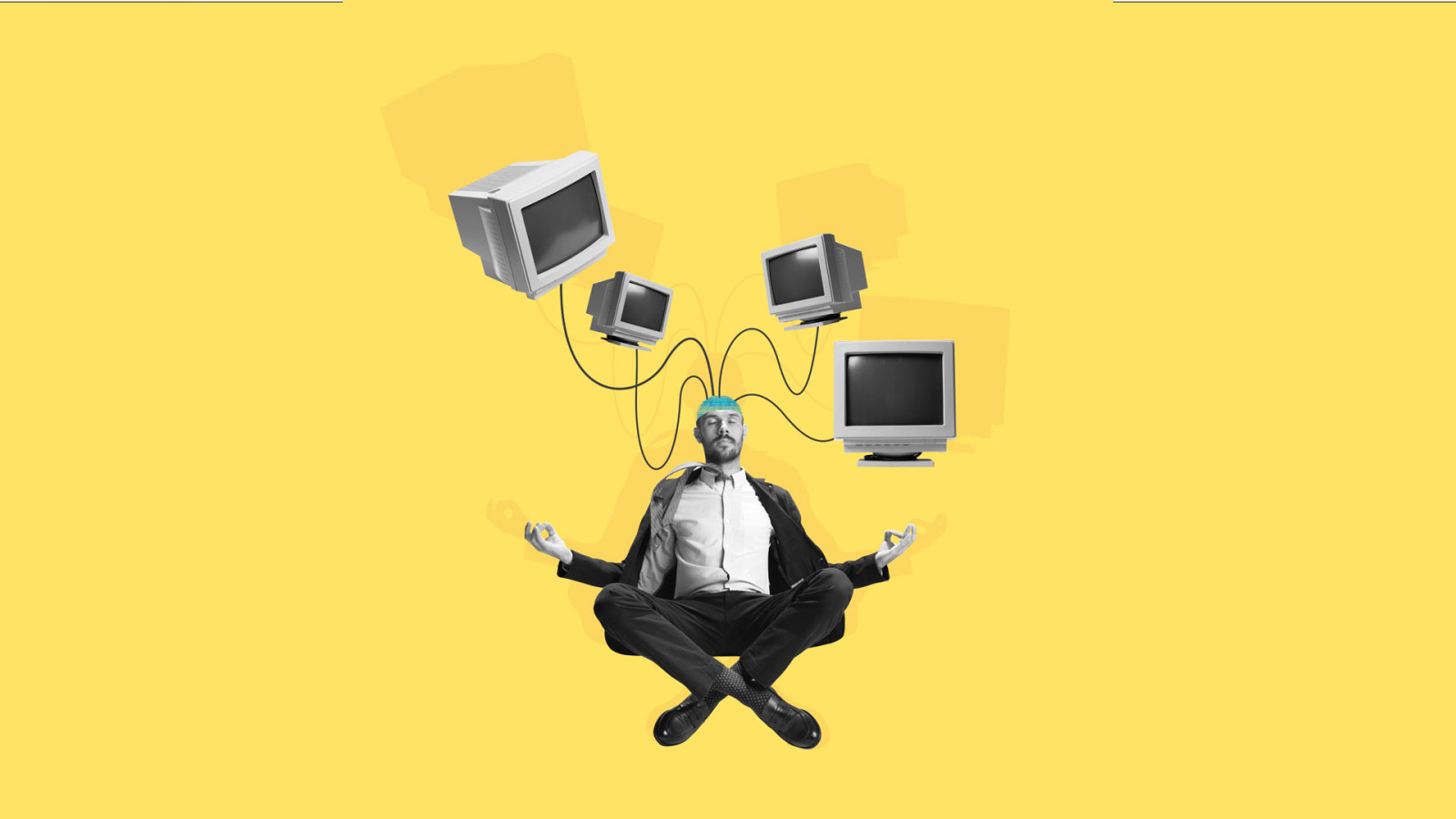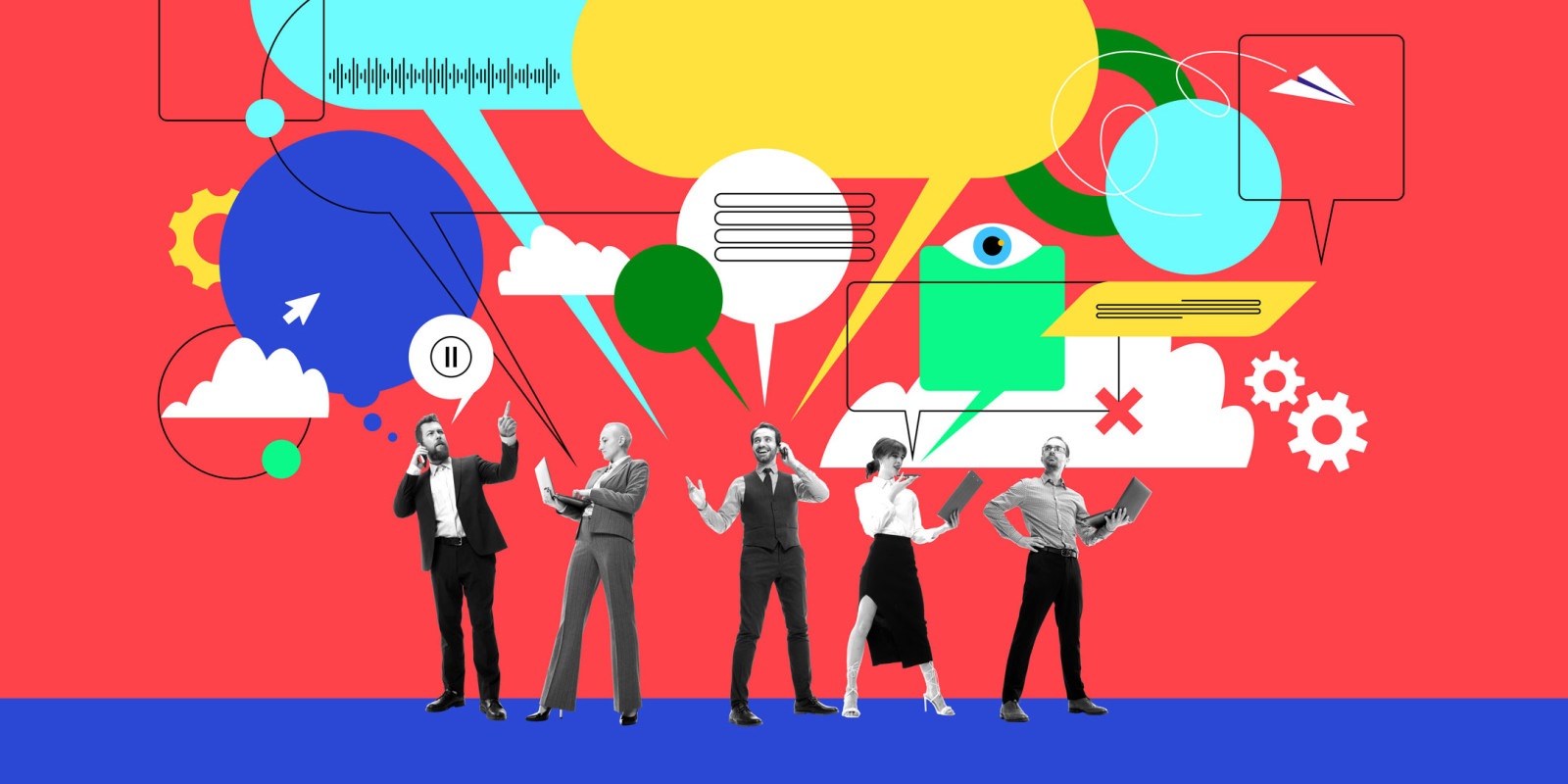The EU AI Act: what’s next for creating content?
Published Feb 02, 2024 – By Lulu Trask

In the past 12 months marketers involved in creating content have been waiting for any snippet of information on impending AI regulations.
The AI market has grown at speed - we all know this much. The global AI market has a compound growth rate of 36.2% from 2022, according to Hootsuite, which also states that 46% of US adults think AI systems are being developed too fast.
But in a world where AI is shaping digital content, and quickly, change is afoot. In August 2023 the US made a landmark AI copyright ruling, and some months later, in January 2024, details of the EU AI Act, which has now been finalised, were leaked. Now, everyone involved in content creation has a hint of what's to come.
The EU AI Act is expected to become law in the first half of 2024, with a two-year phased implementation. It applies not only to EU AI providers and developers, but also those located in other jurisdictions if their AI systems affect those residing in the EU, says Deloitte in The EU AI Act: the finish line is in sight. In other words, similarly to GDPR, you'd do well to presume it applies to you and your content marketing strategy.
What do we know about the EU AI Act?
Creating content with AI will require transparency
“Transparency rules mandate clear communication for AI system interactions, labelling of synthetic content, and data regulation compliance," says law firm Clyde & Co in a summary of the Act. AI-generated content - namely deep fakes and AI-generated text – must be labelled as such.
Not only is this welcome news for the human creators of quality content, many of whom have been able to spot AI-created content a mile off, but been frustrated by its source being hidden, but this is a huge and necessary step from a safety, security and privacy point of view. Only recently explicit deepfakes of pop star Taylor Swift surfaced, amassing more than 27 million views in 19 hours, highlighting just how urgently regulation in this area is needed.
A number of practices will be prohibited
Clyde & Co outlines the prohibited practices as those that include the deployment of AI systems that utilise subliminal techniques or manipulative strategies to distort behaviour, leading to significant harm; that exploit vulnerabilities based on age, disability or specific social and economic situations; biometric categorisation systems inferring sensitive information; the placement, use or service of AI systems for social behaviour evaluation or classification, resulting in detrimental treatment or unjustified consequences.
None of these should be of any concern to a content marketing agency or professional content marketer, but we’d always recommend you sense check any existing policies or put relevant ones in place.
AI can still drive innovation
What are known as “regulatory sandboxes” will be allowed for controlled innovation, including testing in real-world conditions, providing there is regulatory oversight.
The fines are hefty
Non-compliance with prohibited AI practices can result in administrative fines up to EUR 35,000,000 or 7% of a company's total worldwide annual turnover - whichever is higher.
Clyde & Co and Deloitte have provided their own helpful summaries of the Act.
How will the EU AI Act impact content creation?
There is, understandably, a lot of legal terminology when it comes to coverage of the leaked information so far, but what does this actually mean for marketers, writers and designers whose job it is to create content? How will the law limit content creation?
It (probably) won't…
That is, if you're part of a skilled team using your own talents to create quality content. We always say AI gets you part of the way there - never all the way. The leaked information suggests that using AI to provide tangible visuals in storyboard stage or to come up with a content idea as a starting point, which a writer then turns into a blog post or thought leadership piece using their own journalistic skill, isn't going to change. For those who use AI to get all the way there, and create that final output, things are looking different, with content seemingly having to be labelled as generated by AI.
Behind-the-scenes processes won't be affected
At Wardour we use AI in a wealth of our behind-the-scenes processes, including summarising interview transcripts, shortening existing copy for social media content across channels with character limits and identifying awareness days for our social content calendar. It's unlikely that the regulations will have any impact on these types of practices, but it’s something to keep an eye on.
Blurred lines
The question remains as to whether every use of AI in getting to that final delivery of content, whether tidying up the background in a piece of video content or using it to cut down word count in social media content needs to be clearly stated; or whether a piece of content only needs to be labelled as having been created by AI if that's been its sole source of creation. So the content creation process still needs clarification. Then comes the question of the human involvement when it comes to writing the prompts (does that even count as human involvement?) - but that's a whole new discussion. As more information is released about the EU AI Act, we expect this to become clear.
It's unlikely that anyone with above-board practices and who is capable of creating engaging content will be rushing to change their content marketing strategy
What's next for marketing?
With much more information likely to surface, which in itself is likely to generate discussion and clarification, it's unlikely that anyone with above-board practices and who is capable of creating engaging content will be rushing to change their content marketing strategy. This law has been put in place to safeguard individuals and reduce dangerous AI practices - organisations using AI to create whacky creative ideas were never front-of-mind. But there are some areas that we think you might want to keep an eye on…
Social media analytics
If you're a content creator, there is one AI application that you've probably found particular useful over the past year. Today, AI can uncover a lot of audience data and predict which content type will resonate best with your audience for a particular social media post, and on which social network platforms like Hootsuite and Sprout Social are already well versed. This can be incorporated into their social marketing analytics. These insights have been highly valuable in social media content creation and strategies around social content distribution, so if the new regulations pertain to the gathering and use of this data, this could impact this information.
Labelling your content
At Wardour, we think the area most likely to make an impact is the requirement to label content generated by AI. But for agencies that are truly creative and can produce their own great content, this shouldn't change a thing.
One risk of AI-generated content that is not yet regulated but is likely to receive increasing attention is the sustainability impact.
To understand more about how Wardour can help with your content marketing strategy, email us at hello@wardour.co.uk.
Wardour is a creative agency and the above article should not be used to inform business decisions or content strategy. Legal advice should be sought for any queries about the EU AI Act.
Related insights articles
Stay ahead of the curve
Sign up to our emails

